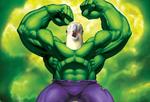
Originally Posted by
Pelicanidae

Sure, but I think it also depends on the cutoff point. For example, if a player is drafted to a team and plays out their rookie deal with the team that drafted them and produces well for only the last 2 years of that deal, and then goes on to continue producing well for a different team, are we counting that as a player failing to be a solid roleplayer for the team that drafted them even though they actually were a solid roleplayer for the team that drafted them, and just ended up somewhere else anyway (as part of a trade, say, or due to another team overpaying with star money for a roleplayer)?
Again, this is just a rough evaluation, but if I look at the years 2010 until 2017 at the 7-19 range exclusively, and look for players who produced at least 2 years of decent roleplayer value for the team that drafted them, this is what I get. Note that I am excluding players who went on to become stars; I'm only mentioning picks who went on to become roleplayers, otherwise guys like McCollum and Giannis and Bam also fall into this pick range.
2017: Luke Kennard, picked #12 overall for Detroit. Has improved in the box score every year, is a good 3pt shooter on high volume, decent roleplayer.
2016: Nobody. Closest is Malik Beasley, who played 3.5 years for Denver (Traded ths year) but was only really producing value for one.
2015: Nobody.
2014: TJ Warren, picked at #14 overall by Phoenix. Played 5 years there, was a major rotation piece for them for 3 of those years. Julius Randle was also this year, #7 for the Lakers, played 4 years there and had developed into a starter and a basically 30 minute per night guy.
2013: Steven Adams went #12 for OKC, Dennis Schroeder went #17 for Atlanta, both guys went on to become major minutes guys on the original drafted teams. Adams is still on OKC and is still providing good play for them.
2012: Harrison Barnes went #7 to Golden State; don't need to explain his role there.
2011: Klay at #11 to Golden State feels kind of like a cheat; he's kind of a roleplayer because he's the definition of 3&D with no other utility like self creation or playmaking, but he's a supercharged roleplayer so maybe it doesn't count. Markieff Morris went at #13 and he became a decent roleplayer for his last few years in Phoenix.
2010: Avery Bradley at #19 to Boston, where he played 6 years and was a major rotation piece by the end of the rookie deal (28mpg in year 3, 31 in year 4). Ed Davis at #13 to Toronto, where he played 2.5 years and was a fairly consistent rotation piece for most of that time.
So that's not a ton of players (is in fact only 10 players in 8 drafts) of course, but in fairness there are also a ton of players picked in this range who ended up being way better than roleplayers: Andre Drummond, McCollum, Donovan Mitchell, Giannis, Kawhi Leonard, Bam Adebayo, etc. And I was being pretty restrictive by demanding at least 2 years of real rotation piece/roleplayer play within the first 4 years and only for the team that drafted them (since that's a pretty big part of your argument).
Do you have a point? Yes, you're right that not that many guys picked in this range ended up being productive roleplayers for the team that drafted them within the lifespan of their rookie deal. But there are definitely some, and if you think that you, as an executive and a scouting team, are capable of identifying who that will be, surely you can at least understand the argument for selecting that guy over, say, Thon Maker, who people tout as being a potential star if-only?
I was surprised though, in fairness, at the number of really good college players who dropped into this range in the draft and who (predictably) ended up being really good in the NBA. Kemba Walker, Paul George, CJ again, etc. I'd be optimistic and say hopefully one of them falls into our range this year and you can just pick someone who's great that shouldn't have fallen, but then again it is the 2020 draft and there isn't anyone incredible so that's unlikely.






 Reply With Quote
Reply With Quote



 Contributor
Contributor 

